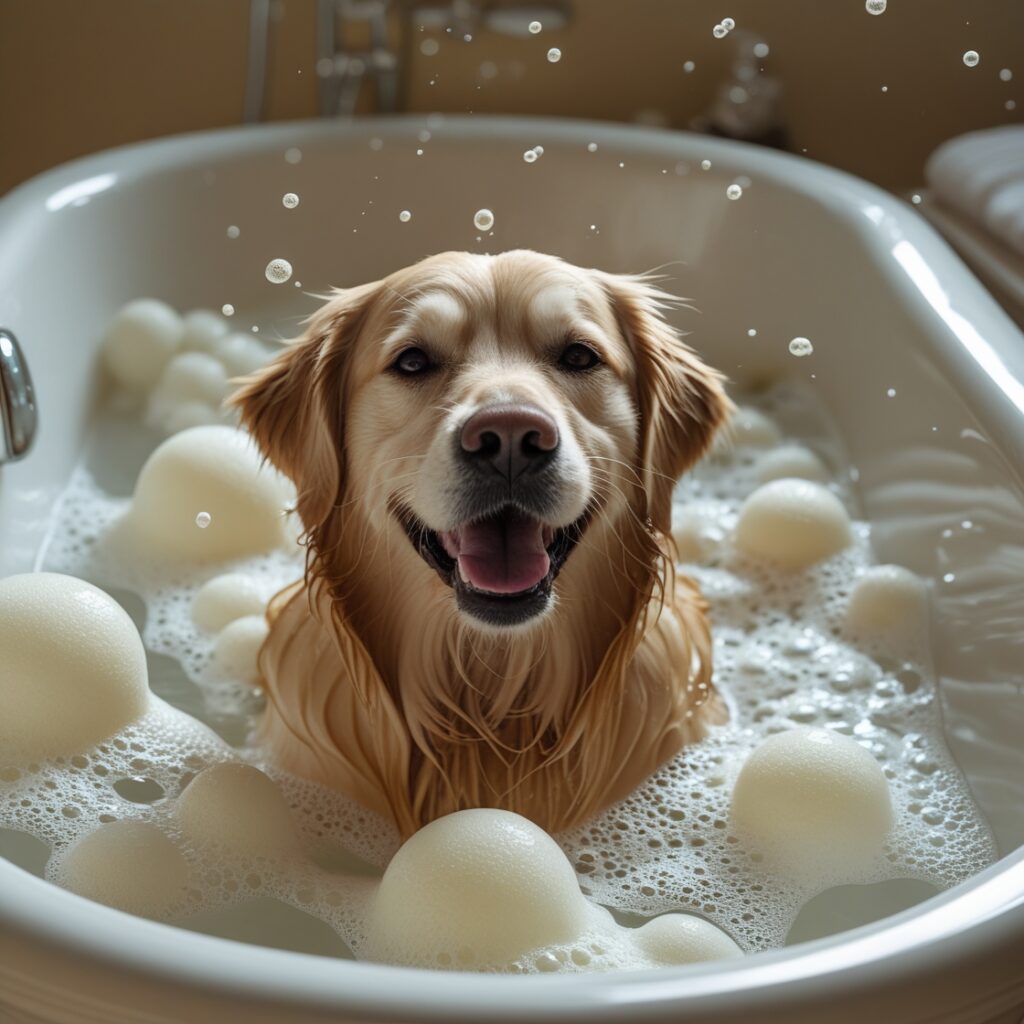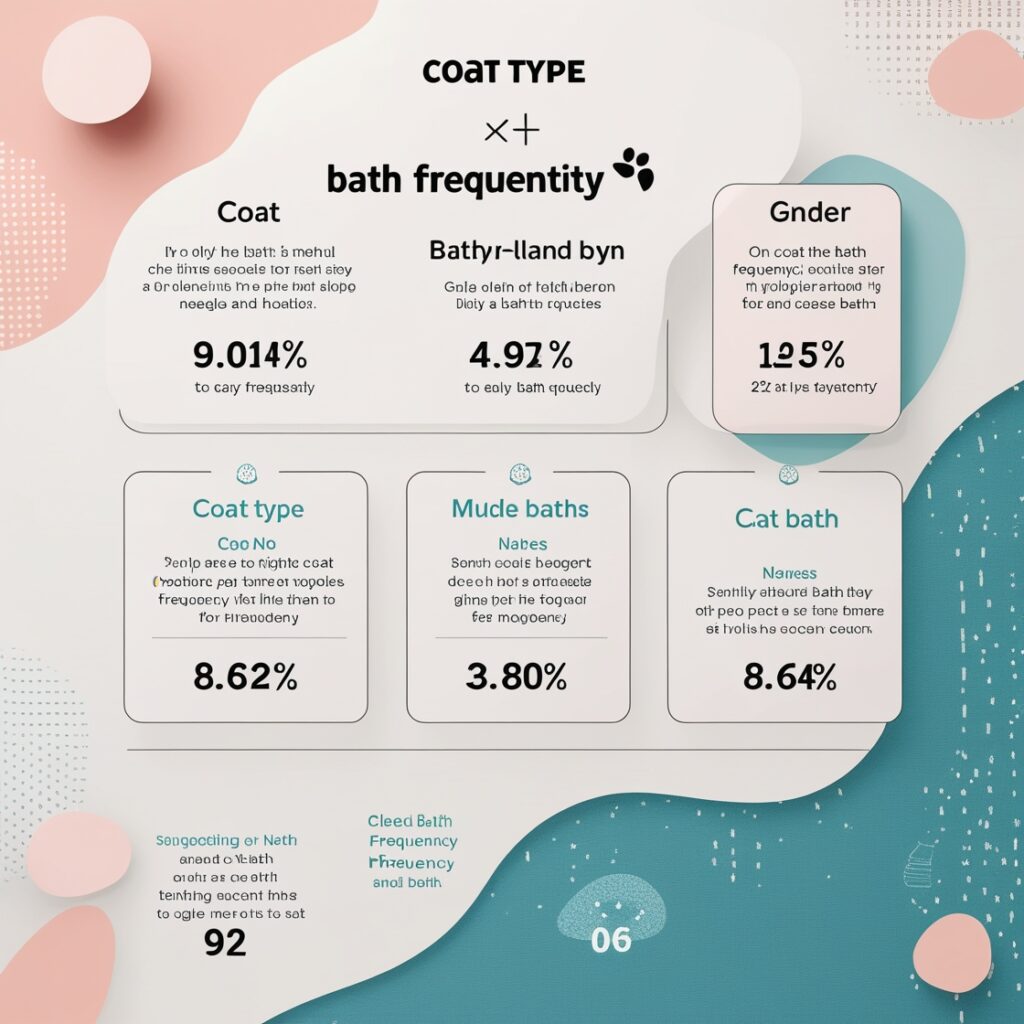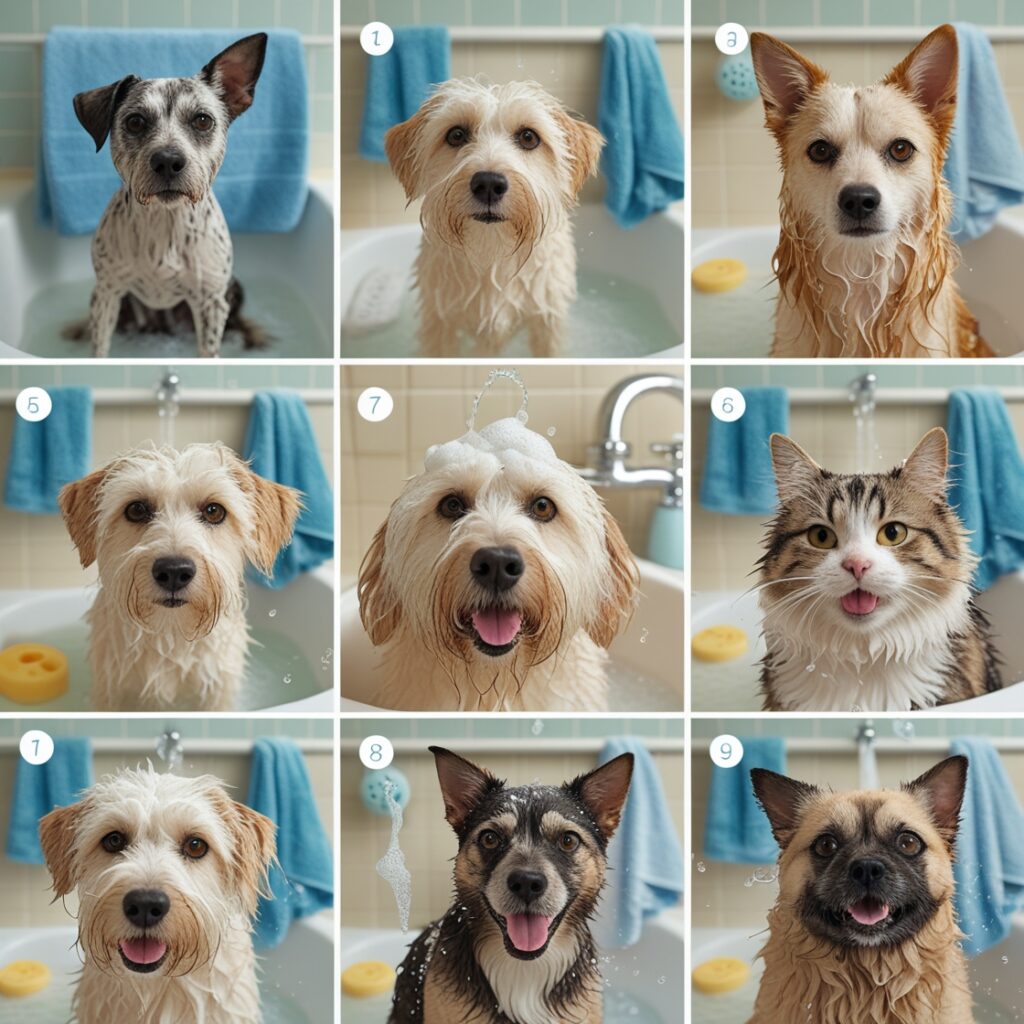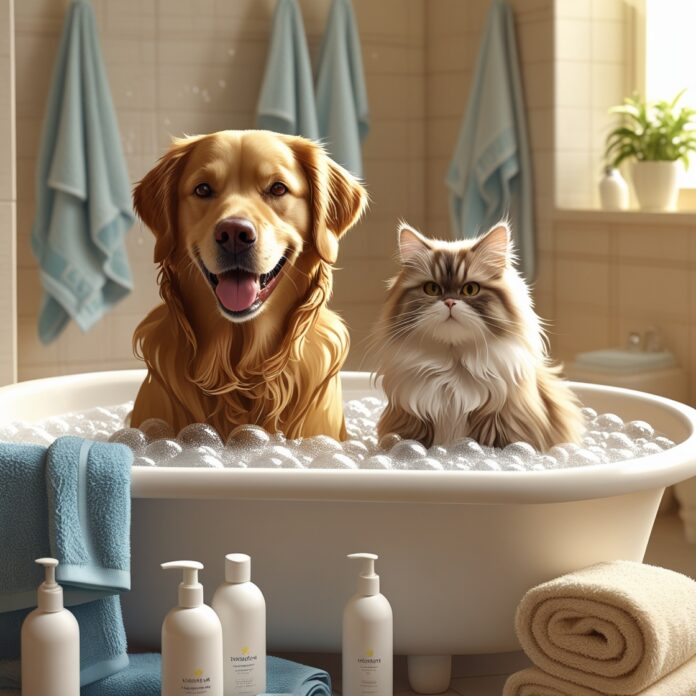Even though cleaning your pet can seem simple, the amount of time required for a good pet bath might vary based on a number of factors. Giving your pet too frequent bathing will turn out dilapidating its skin oil which plays a crucial role in its well-being. On the other hand, a lack of baths may be the cause of diseases, unwanted odors, and the accumulation of filth.
So, how often should you bathe your dog or cat? Let’s consider this topic extensively, and rely on professional veterinary support.

🔍 What Factors Determine Bathing Frequency?
1. Breed and Coat Type
Be mindful that some breeds require a more rigorous grooming schedule than others. Below is how the variety of hair coat affects the frequency of pet bathing:
Dogs
- -Short-haired breeds (e.g., Beagles, Boxers): Bathe every 2–3 months.
- -Long-haired breeds (e.g., Golden Retrievers, Collies): Every 4–6 weeks.
- -German Shepherds and Huskies are examples of double-coated breeds; every 6–8 weeks.
- -Hairless breeds (e.g., Chinese Crested): Weekly to remove oil buildup.
Cats
- -Short-haired cats: Every 6–8 weeks. They self-groom effectively.
- -Long-haired cats (e.g., Persians): Every 4–6 weeks to prevent matting.
- -Cats without hair (like Sphynx): Every week because of skin oils.

2. Lifestyle and Activity Level
An energetic dog that is fond of swimming in mud and a cat that hides outside will need more frequent baths than the latter. To put it another way, a creature that would rather sit on a sofa indoors won’t require as many baths as the former.
If your pet:
- Loves outdoor adventures 🏞️: Bath every 2–4 weeks.
- Mostly stays inside 🏠: Taking a bath every six to eight weeks might be sufficient.
- Scratching more than usual
- Visible dandruff
- Greasy coat
- Persistent odor
- Bright redness or irritation of the skin
3. Skin Health and Medical Conditions
For instance, animals suffering from allergies, parasites, or skin infections such as seborrhea may require a weekly or bi-weekly medicated bath treatment — but only as prescribed by a veterinarian.
Here are some indications that your pet may need to take a bath frequently or that they may need a medicated bath:
- – More than normal scratch
- – Itchy skin that is visible or felt as a sensation of itching
- – Hair that is shiny and greasy
- – Bad smell that is still persistent after a bath

🧴 Best Practices for Bathing Your Pet
When your pet needs a bath, it is not just a question of how often it should be done but what the procedure of it will look like.
Learn these vet-endorsed pieces of advice:
- ✅ Utilize pet-specific shampoos (not human products!)
- ✅ Brush the fur before washing to avoid knots and matting.
- ✅ Make sure to rinse well because any shampoo residue can cause skin irritation.
- ✅ Make sure the pet is thoroughly dry to avoid fungal infections or chills.
- ✅ Use treats as an award for which your pet will create a positive association with the bath time
Overbathing is not advised because it can negatively impact your pet’s natural skin barrier and coat oils, particularly in dandruff-prone breeds like Bulldogs or Siamese cats.

⚠️ When to See a Vet
In the case of the appearance of any of the problems below, it is highly recommended to chat with a vet right away:
- Constant scratching or skin irritation
- Patches of lost hair
- A drastic change in your pet’s natural odor
In no way should the bath time be anxiety or pain. Based on their evaluation of the skin’s state, the veterinarian can recommend the best products and bathing regimen.
🛒 Choosing the Right Products
Remember to include:
- Oatmeal-based shampoos if your pet has dry or sensitive skin
- Medicated shampoos (only if recommended by the vet)
- Deodorizing shampoos for breeds that have an unpleasant smell
Exclude the use of:
- Human shampoos
- Strong perfumes
- Homemade remedies that are not approved by



